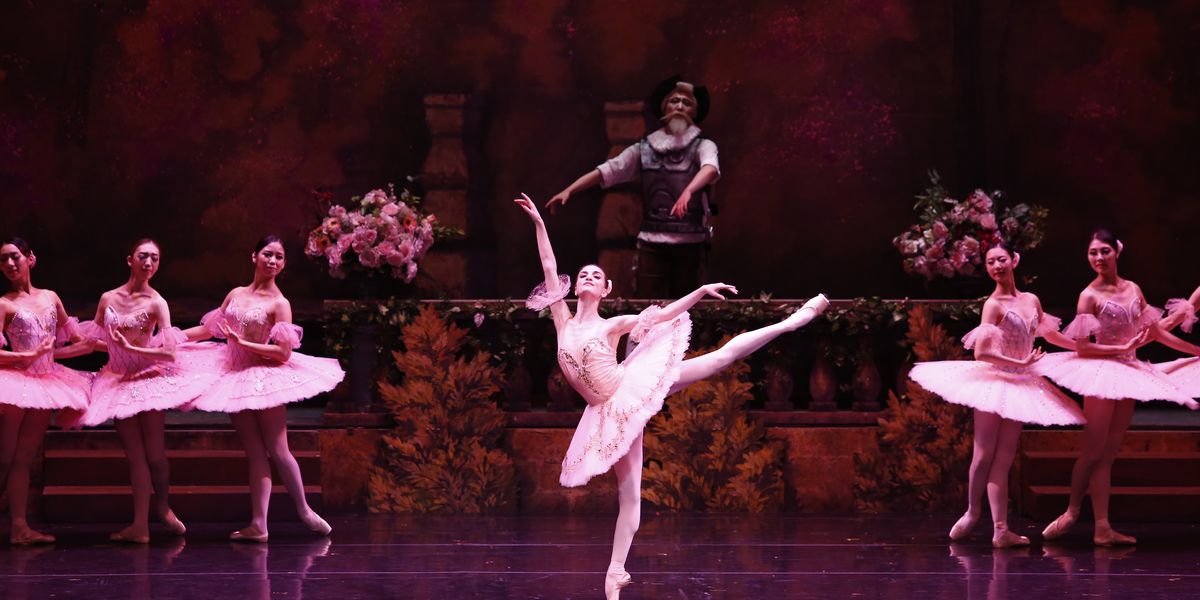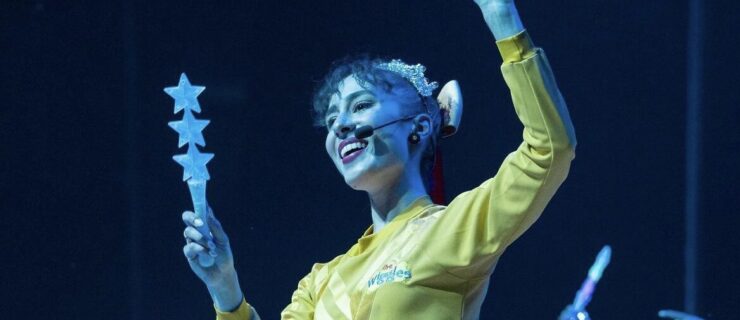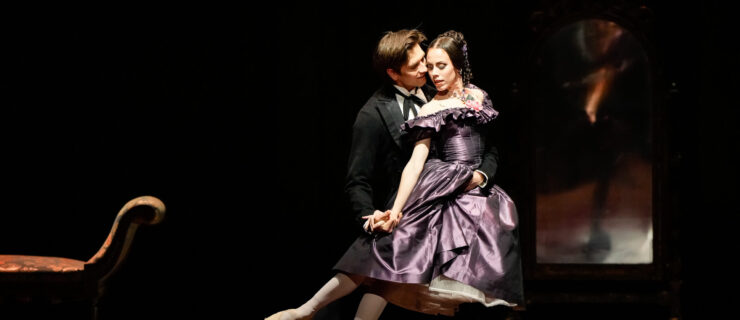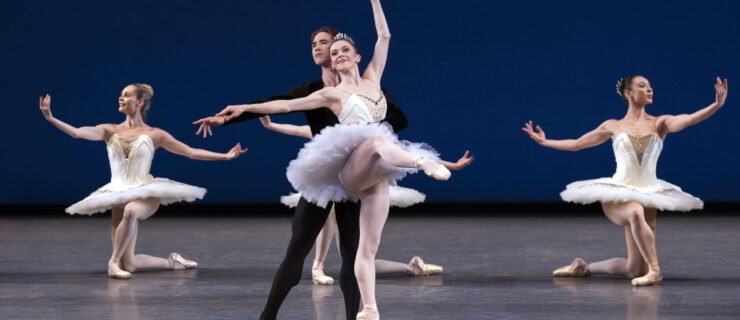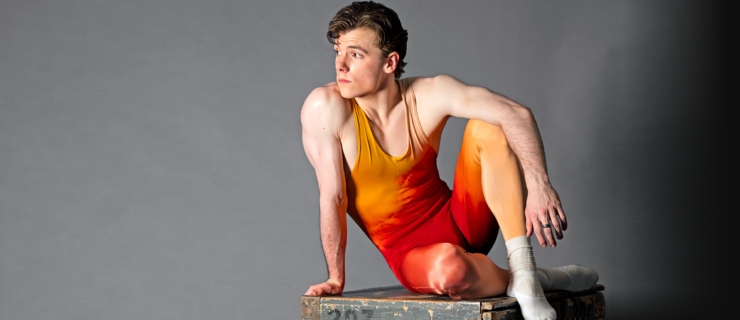After Careers in Moscow and Seoul, Joy Womack Looks to Expand Her Horizons
Joy Womack is no stranger to the road less traveled. As the first American graduate of the Bolshoi Ballet Academy and first American woman to join the Bolshoi Ballet, the California native is accustomed to going out on a limb. Now at 24, after spending last season as a principal dancer with the Universal Ballet in Seoul, South Korea, she is taking a leave of absence and is back in Moscow with a revamped perspective and an impressive bucket list. We caught up with Womack over the phone to hear about her move from Russia to Korea and back again, and how life has changed since venturing on her own.
You trained at the Kirov Academy in Washington, DC, before going to the Bolshoi Ballet Academy. How did your training experience in Russia differ from ballet school in America?
I think the biggest difference is that at school in Russia, we performed all the time. I danced my first principal roles at 17, and was always happiest when teachers pushed me. It was hard sometimes, to always be known as the token American in Russia. You get put in a box, and it’s hard to be seen beyond that. But it served me well in the beginning. I could turn, and stood out from the crowd for my technical strengths. That’s how I wound up being taken into the company, too.
 Womack in rehearsal for “Giselle.” Photo by Kyoungjin Kim, Courtesy Universal Ballet.
Womack in rehearsal for “Giselle.” Photo by Kyoungjin Kim, Courtesy Universal Ballet.
Why did you join the Kremlin Ballet Theatre of Moscow, and what happened next?
I joined the company because my life at the Bolshoi had become too political, and I wanted to focus on the work again. In the beginning, it was wonderful. We worked all the time, without a free day. I performed tons of principal roles and had an amazing coach. But I was always encouraged to compete, both with myself and my colleagues. After awhile, I realized that my worth was always based on my last performance. I also started noticing that my weaknesses—my port de bras, for example—were never addressed. I thought, if this is the top, what’s the point? It had all just become too routine. I just couldn’t live to hear “good job” as the measure of my personal worth any more. It was definitely a hard decision to leave, though, because I was afraid of seeming ungrateful after all the opportunities that I was given.
What did you hope to find in another company?
I wanted to find a company that would push me to overcome my limitations, and that would make room for me outside of my “American in Russia” box.
I performed in some galas over a layoff, and met dancers whose approach was different to mine. They were fulfilled by the work, instead of by the constant hope of promotion. They had social lives. And they danced other styles.
 Womack and Minwoo Kang in “Don Quixote.” Photo by Kyoungjin Kim, courtesy Universal Ballet.
Womack and Minwoo Kang in “Don Quixote.” Photo by Kyoungjin Kim, courtesy Universal Ballet.
Did dancers in Seoul work differently?
Yes! I really admired their work ethic. In a way, it was a lot like going back to school. I always thought that if I could make it in Asia, then I’d really have achieved something.
It was a whirlwind season with the Universal Ballet. We worked in the studio all day. I was definitely influenced by the other dancers’ kindness, humility and respect for time in the studio. I also learned to never take a rehearsal for granted. My main coach was Russian, so the overall style didn’t change. But interpreting a role became more of a discussion, not just: it’s my way or the highway.
We encouraged and pushed each other. But we also celebrated each other for being individuals. And the group was much more international. I didn’t feel like the token American anymore. One of my partners was Chinese, and over 6 feet tall. It was nice to finally feel embraced for my individuality.
Why are you leaving Universal Ballet?
I am so grateful for my time in Seoul, but in the end I couldn’t imagine planting roots there. There are so many things that I’m interested in, and it was hard to explore those channels from so far away. We also worked on a schedule where we prepared each production for two months before performing. In the end, I was hungry for more stage time.
In Russia, I was 23 and obsessed with work. During my last season with Kremlin, I’d just gone through a divorce, and had to see my ex every day in the studio. I became numb to the emotional side of dancing. After a season in Seoul, I’ve learned to not be as consumed with defining my self-worth by how much I weigh that day, or with what a coach thinks of me. But with that new freedom comes a lot of new challenges and uncertainties. I’m in the process of trying to figure out what that means for my career.
Leaving Seoul was also a financial choice. The past year with Universal Ballet finally allowed me to save bit of money. In Russia I only earned $200 a month. It’s was a crazy feeling to finally be able to buy the everyday things I needed, and it made it possible to have a life outside of the studio in Seoul. But it still wasn’t enough to buy airline tickets to stay connected with the rest of the dance world, and with my family in the States.
 Womack in rehearsal at Universal Ballet. Photo by Kyoungjin Kim, courtesy Universal Ballet.
Womack in rehearsal at Universal Ballet. Photo by Kyoungjin Kim, courtesy Universal Ballet.
What have you done since leaving Seoul?
The beauty of not being attached to a company is that I’m able to handpick my own coaches and hone specific aspects of my dancing. I’m back in Moscow working with the coach Ilya Kuznetsov, and with dancers from the Bolshoi. Since leaving Korea, I’ve traveled to Italy almost every month to work with the coach Claudia Zaccari, former prima ballerina with the Teatro dell’Opera in Rome, who has become a mentor and big presence in my life. She’s introduced me to a lot of people who are advising me to take my time to figure out what I want in a next company position.
I’ve really enjoyed preparing for guesting opportunities that I’ve been able to take on. I’m working with my old partner Mikhail Martynuk to prepare a performance tour this November and December in Switzerland, Italy, and Germany. I also have a close relationship the National Capital Ballet in Australia, where I’ve recently danced some gala performances.
Any roles you dream of dancing?
I’d love the chance to learn more dramatic ballets, like Onegin or Romeo and Juliet. And I hope to work with more contemporary choreographers. I’m eager for chances to push my boundaries and discover new sides of myself.
I’m approaching this time as an opportunity to be diligent about preparing for the next step. If I want more responsibility as a principal dancer, I need to be ready to step up to the plate. The people I’m working with now encourage me to try new styles and to not be so attached to my Russian technique. It’s been so freeing to explore how these new approaches feel onstage.
 Womack and Ming Ma in “Giselle.” Photo by Kyoungjin Kim, courtesy Universal Ballet.
Womack and Ming Ma in “Giselle.” Photo by Kyoungjin Kim, courtesy Universal Ballet.
Are there any other goals you’d like to achieve?
My focus has definitely started to shift toward my future. I was accepted at the Russian State Theatre Arts Ballet Pedagogy and Choreography program in Moscow, to become a certified teacher in four years alongside my dance career. It’s been amazing so far to delve so deeply into the history and mechanics of dance training, and I can’t wait to see where it leads.
I’m very interested in giving back to the next generation. My path hasn’t always been easy. I’ve auditioned a lot, and have dealt with a ton of rejection. I want to be there for dancers who struggle to make it professionally. That’s why I have a YouTube channel—to help people who have questions and to shed light on what it’s really like to be a professional. I’m also very excited to be coaching a student for the Beijing International Ballet Competition this October. It’s been such a privilege to work with her and see her progress!
I’m not sure how long my career as a dancer will last. Hopefully when I do find a place in another company, I’ll be a better, stronger, version of myself. But I’ve learned that performance satisfaction doesn’t last forever, and that I have to find fulfillment somewhere else. But for right now, I’m happy. And I’m thrilled to finally be able to say that.
